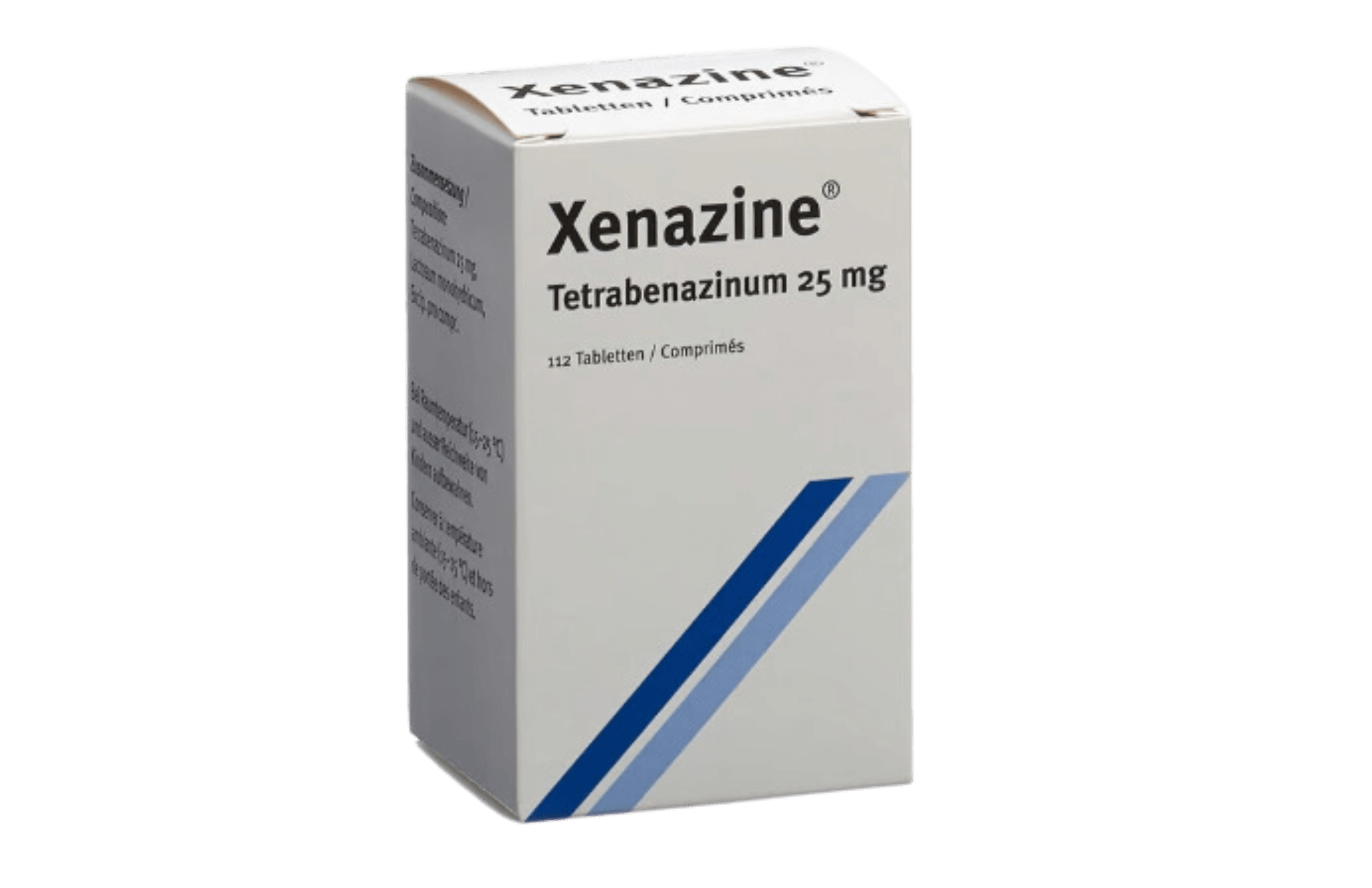Xenazine (
generic name: tetrabenazine) is a prescription medication used to treat involuntary movements (chorea) associated with Huntington’s disease.
Xenazine works by reducing
dopamine and other neurotransmitters in the brain, which helps control abnormal movements. By blocking dopamine,
tetrabenazine regulates motor function, which helps to improve the patient’s ability to manage daily activities with greater control and stability.
Tetrabenazine belongs to a class of drugs known as
vesicular monoamine transporter 2 (VMAT2) inhibitors
. These drugs specifically target and inhibit the release of neurotransmitters involved in movement disorders. Xenazine is typically prescribed for individuals with Huntington’s disease, but it can also be prescribed off-label for other movement disorders, such as
tardive dyskinesia or
Tourette syndrome.
The effects of Xenazine vary from person to person, and the dosage is adjusted carefully to achieve the right balance between controlling symptoms and minimizing side effects. As with any medication that affects brain chemicals, Xenazine requires close monitoring by healthcare providers to prevent complications.
For more information on tetrabenazine and its use in treating movement disorders, visit this
page.
Dosage
The typical starting dose of Xenazine is 12.5 mg daily, which may be increased gradually based on the patient’s response to the treatment. The maximum dose is usually 50 mg daily, divided into multiple doses. Dose adjustments are made carefully to avoid side effects while achieving symptom relief.
Storage
Store Xenazine at room temperature, between 20°C to 25°C (68°F to 77°F), away from moisture and light. Keep the medication in its original container, tightly closed, and out of reach of children.
Read our tips on handling medicine safely.
FAQ
How long does it take for Xenazine to start working?
The effects of Xenazine may be noticeable within a few days, but it may take several weeks to achieve the full benefit. Dose adjustments are typically made gradually to balance symptom control and side effects.
Can Xenazine cause depression?
Yes,
Xenazine has been associated with an increased risk of depression and suicidal thoughts. It is important to monitor for mood changes and report any symptoms to a healthcare provider immediately.
Can Xenazine be taken with other medications?
Xenazine may interact with certain medications, including those affecting
heart rhythm or neurotransmitter levels. Always inform the healthcare provider of all medications being taken to avoid potential interactions.
This text is for informational purposes only. Please consult a doctor or pharmacist before using any medication.
Read the information leaflet that comes with the medication.
Most people who use Xenazine do not experience any adverse side effects. Doctors prescribe this medication because they assess the benefits of such treatment outweigh any likely unwanted effects.
Some of the side effects that have been reported include:
- Drowsiness
- Fatigue
- Insomnia
- Depression
- Nausea
- Anxiety
Warnings:
Xenazine can increase the risk of depression and suicidal thoughts, particularly in individuals with a history of depression or other mental health issues. Close monitoring is essential, and any signs of mood changes, suicidal ideation, or worsening depression should be reported to a healthcare provider immediately.
Tetrabenazine can cause symptoms similar to Parkinson’s disease, such as tremors, slow movements, and muscle stiffness. These symptoms require medical evaluation and may necessitate dose adjustments.
Not all side effects are listed here. If these or other unlisted symptoms persist or worsen, consult a healthcare provider or pharmacist.
Xenazine is FDA-approved for the treatment of movement problems (chorea) associated with Huntington’s Disease. Chorea is characterized by rapid, involuntary movements that may interfere with the patient’s ability to walk, talk, or eat. Xenazine helps reduce the frequency and severity of these involuntary movements, improving motor function and quality of life.
Xenazine can be prescribed off-label for the treatment of:
- Involuntary movements caused by long-term use of certain psychiatric medications (Tardive Dyskinesia).
- Tourette Syndrome, a neurological disorder characterized by repetitive, involuntary movements and vocalizations.
Symptoms of these movement disorders include involuntary jerking or twitching, muscle rigidity, and difficulty with coordination, all of which can significantly impact daily functioning.













